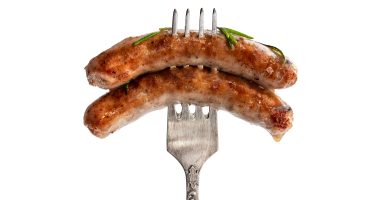MILLIONS of vulnerable households have seen Universal Credit payments boosted by £20 a week since March last year.
The Chancellor Rishi Sunak announced the benefit uplift, which is worth £1,040 a year, to help Britain’s poorest families through the coronavirus crisis.
? Read our coronavirus live blog for the latest news & updates
But the lifeline is due to end in March, which will see payments slashed for everyone on Universal Credit from April.
However, The Sun has reported that Mr Sunak is considering an extension to the help while Covid restrictions remain in place.
It is believed he is holding out until the Budget in March before making a decision, although the government is yet to confirm any plans.
For now, we take you through everything you need to know about the benefits boost, from who gets it to how to claim it.
Who gets the extra £20 a week Universal Credit boost?
Everyone who claims Universal Credit gets the £20 a week uplift, regardless of what elements you are entitled to.
Your earnings and individual circumstances are not taken into account and new and old claimants can get it.
What to do if you have problems claiming Universal Credit
IF you’re experiencing trouble applying for your Universal Credit, or the payments just don’t cover costs, here are your options:
- Apply for an advance – Claimants are able to get some cash within five days rather than waiting weeks for their first payment. But it’s a loan which means the repayments will be automatically deducted from your future Universal Credit payout.
- Alternative Payment Arrangements – If you’re falling behind on rent, you or your landlord may be able to apply for an APA which will get your payment sent directly to your landlord. You might also be able to change your payments to get them more frequently, or you can split the payments if you’re part of a couple.
- Budgeting Advance – You may be able to get help from the Government for emergency household costs of up to £348 if you’re single, £464 if you’re part of a couple or £812 if you have children. These are only in cases like your cooker breaking down or for help getting a job. You’ll have to repay the advance through your regular Universal Credit payments. You’ll still have to repay the loan, even if you stop claiming for Universal Credit.
- Cut your Council Tax – You might be able to get a discount on your Council Tax by applying for a Council Tax Reduction. Alternatively, you might be entitled to Discretionary Housing Payments to help cover your rent.
- Foodbanks – If you’re really hard up and struggling to buy food and toiletries, you can find your local foodbank who will provide you with help for free. You can find your nearest one on the Trussell Trust website.
All Universal Credit claimants will have seen the extra cash added to the standard allowance element in their journal.
Because the benefit is paid out monthly, the amount of money added to the element is a month’s worth, rather than a week.
To work this out, the DWP multiplies £20 by 52 weeks in the year, and then divides it by 12 months.
This is then added onto the amount that you would normally receive for the standard element.
How much have my payments gone up by?
Everyone on Universal Credit is entitled to the standard element regardless of their circumstances.
But how much you get depends on whether you are a single or joint claimant and your age.
Before the Chancellor announced the boost, single people under the age of 25 were entitled to £256.05 a month but this rose to £342.72 from April 2020.
Meanwhile, single claimants aged 25 and older saw their standard allowance rise from £323.22 a month to £409.89.
Joint claimants both under 25 saw payments go up from £401.92 to £488.59 a month, while couples where one or both people are 25 or older saw payments go up to £594.04 from £507.37.
To check whether you have been receiving the increased amount, you can go back through your online journal every month until April 2020.
Is it affected by the benefits cap?
There is a limit to the amount of benefits any one person can receive.
While everyone who is affected by the benefit cap will still have received the £20 a week boost, it may not have had an impact on your overall monthly payments.
This is because you are already at the limit of how much state support you can claim.
Equally the increase may take you up to the cap, which also means you wouldn’t see it.
However, people who have been able to earn over the benefits cap due to the government’s nine month coronavirus grace period will have benefited from the increased monthly payments.
The amount which benefits are capped by depends on where you live and whether you are claiming as a single person or a couple.
The benefit cap outside Greater London is:
- £384.62 per week (£20,000 a year) if you’re in a couple
- £384.62 per week (£20,000 a year) if you’re a single parent and your children live with you
- £257.69 per week (£13,400 a year) if you’re a single adult
The benefit cap inside Greater London is:
- £442.31 per week (£23,000 a year) if you’re in a couple
- £442.31 per week (£23,000 a year) if you’re a single parent and your children live with you
- £296.35 per week (£15,410 a year) if you’re a single adult
If you’re not sure that you are being paid correctly, you can raise your concern with your work coach on your online journal.
Alternatively, you can submit a formal complaint to the DWP.
How do you claim the benefit boost?
You don’t need to make a claim for the benefit boost as it will have already been automatically applied to everyone on is on Universal Credit.
The increased payments started back in April 2020. Over the year, they are worth £1,040.
When does it end and will it continue?
The temporary uplift is due to end in April 2021, meaning the last increased payments claimants will receive will be in March 2021.
The Chancellor has repeatedly come under pressure from MPs, charities and campaigners to permanently extend the lifeline for millions of families.
It is reported that Mr Sunak does not want to make the £6billion uplift permanent.
He says it will cost the equivalent of a penny on income tax for 30 million Brits, and a 5p rise in fuel duty to fill the black hole in Britain’s battered finances.
But there are reasons to remain hopeful. Yesterday, The Sun reported how the boost is likely to stay while the Covid restrictions remain.
He is also reported to have considered easing the withdrawal pain with a one-off cash bonus of £500 but his allies reject reports it could rise to £1,000.
Mr Sunak is expected to announce a decision in the upcoming Budget on March 8.
If payments are cut, we’ve put together a round up of seven other ways to get help paying bills.
Universal Credit’s tax on workers should be cut to help struggling Brits back into employment, a new think tank report has said.
Thousands of people claiming Universal Credit will be worse off this month because coronavirus exemptions from the benefit cap start to end.
This post first appeared on thesun.co.uk





















